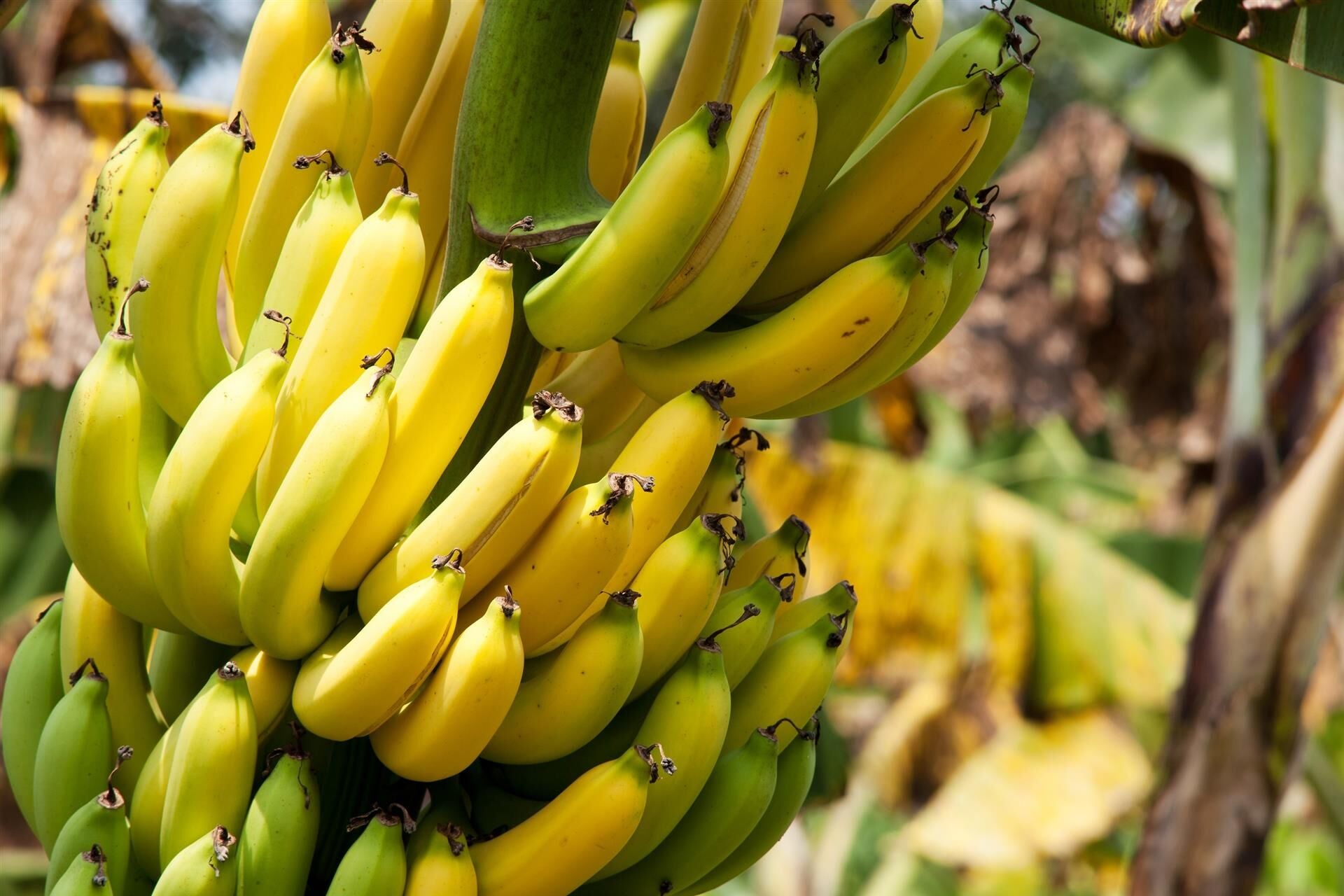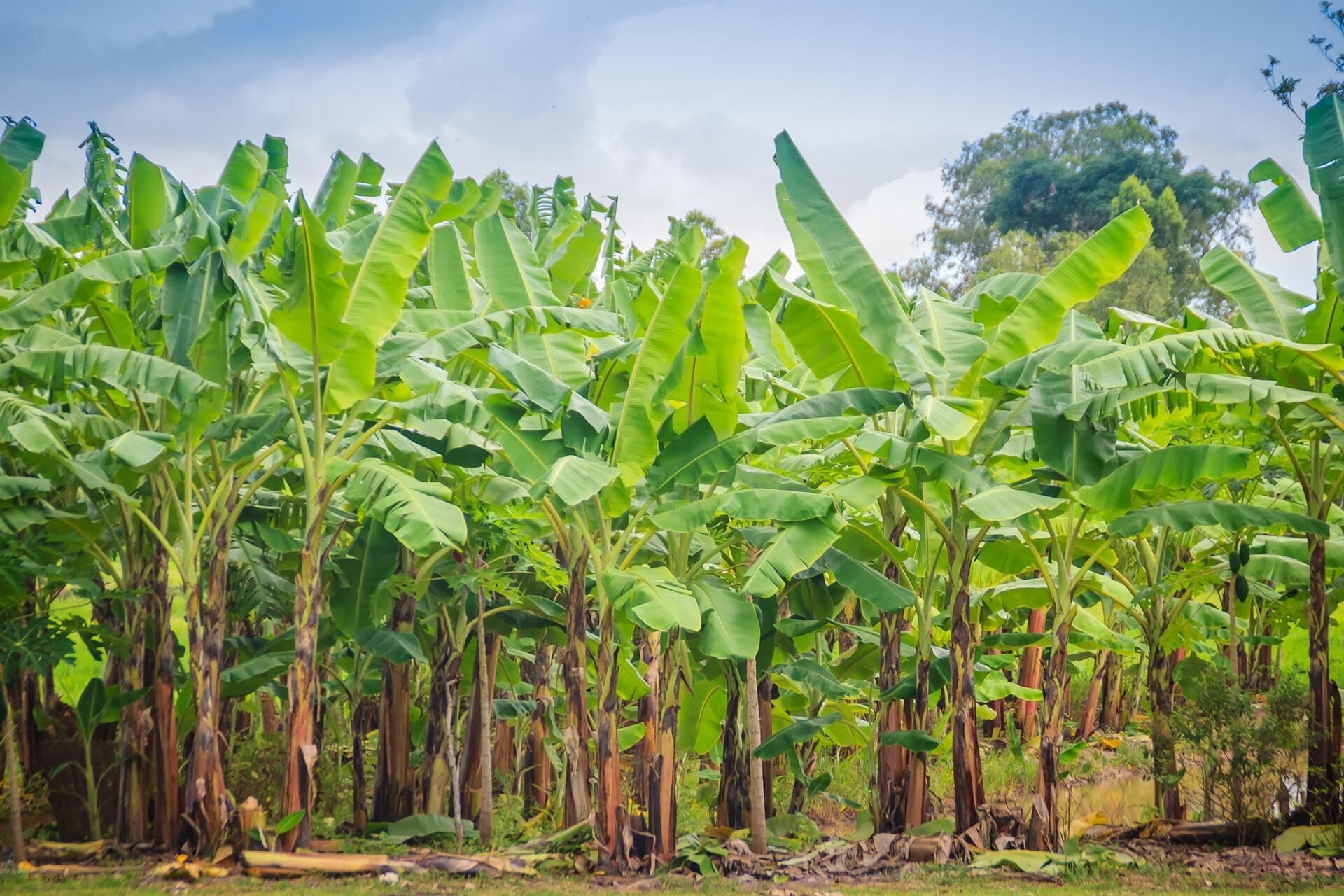Tropical fruit options bring exciting opportunities.

New Zealanders have an appetite for the yellow fruit, chomping through a whopping 18kg per capita a year, about $140 million worth that puts this country at top of the global list for banana consumption.
But the world’s annual 145 million tonne banana crops are also under siege.
After years of staving off various diseases and pests with an assortment of chemical controls, crops around the world are succumbing to a Fusarium disease, known as Tropical race 4.
The fungal infection roots the crop’s roots, spreading up through the leaf tissue causing it to wilt and die. Its spores linger in the plantation soil and it brings the risk of killing 80% of bananas grown every year.
But just as global warming is being identified as the biggest threat facing the planet, it is also bringing some unexpected opportunities in terms of what crops can be grown where, and in the case of New Zealand, bananas are one of those opportunities.
Global warming is bringing some unexpected opportunities in terms of what crops can be grown in New Zealand - bananas are one of those opportunities.
The semi-tropical climate of Northland is proving an excellent hub for a band of enthusiastic and increasingly commercially focused banana growers, headed up through the Tropical Fruit Growers of NZ group.
Farming on a 40ha property near Parua Bay on Northland’s east coast near Whangarei Hugh Rose, head of Tropical Fruit Growers of NZ has a veritable fruit bowl of tropical produce growing. Varied varieties of exotic fruit compete for visitors’ taste-buds, ranging from pineapples to bananas, dragon fruit, pawpaw and even sugar cane.
He classes bananas as the easiest crop in the world to grow, benefitting from New Zealand’s low disease and pest levels compared to the tropics, and capable of producing fruit almost constantly through the year once temperatures exceed 14C.
With 17 varieties of the popular fruit growing, there is increasing consumer interest in the New Zealand sourced bananas that have a ready market at about $8 a kg through Whangarei’s farmers’ market.
“And with the number of enthusiasts we now have on board, there should be enough bananas growing now for Northland to be self-sufficient in a couple of years.”
His calculations on potential earnings would make most horticulturalists sit up and take notice.
His calculations per hectare with 1,500 plants a hectare in the ground could easily result in over 15,000kg of bananas a year. Even at $2 a kg this returns $30,000 a hectare.
Potential earnings would make most horticulturists sit up and take notice. With 1,500 plans a hectare in the ground, it could easily result in over 15,000kg of bananas a year. Even at $2 a kg this returns $30,000 a hectare.
And the crop is not necessarily dependent upon traditional views of what sort of climate the fruit usually grows in.
“We have growers producing bananas in Invercargill, admittedly under tunnel shelter, but there are growers throughout Northland, Bay of Plenty, down to Gisborne all producing good crops.”
As a highly water efficient, funnel shaped plant they do not require much irrigation, grow well on most soil types and are tolerant to many pests and diseases.
The fruit also sits well alongside traditional pastoral activities like dairying.
“Dairy effluent is high in nitrogen and phosphate, exactly what bananas love, and the plant just sucks up those nutrients, making it an ideal crop alongside a dairy operation.” And a source of cattle feed, with all of the plant edible to stock.
Pineapples, coffee and a little known Peruvian fruit called lucuma all have potential in the sub-tropical regions throughout New Zealand.
Rose is excited by the growing level of experimentation by enthusiasts and the knowledge that is being acquired by them.
“Globally consumers’ tastes are changing, and we have the ability to grow many of these products, saving on imports and food miles, generating new high value horticultural sectors along the way”
Rose bought his property through Bayleys after looking for the ideal lifestyle block, and has found over the past two years it has proven highly suited to his intensive fruit growing trials.
“It was a bit run down when we took it over, but had good under ground springs that were important for my wife Pauline who has been developing Lotus water gardens.”
He anticipates the opportunities that exist in coastal areas around New Zealand for such niche crops, capable of earning good returns of small scale land titles.
Bayleys Whangarei horticulture and lifestyle specialist Vinni Bhula said the appealing climate and supply of smaller scale lifestyle blocks available throughout Northland set the region up well to develop some exciting new produce sectors.
“I often get people asking me what else they could do with a small block, other than avocados or kiwifruit. The returns from bananas mean a block has the potential to deliver similar income to a Green kiwifruit, so it’s an appealing option to consider.”
He said there was a growing demand for niche crops coming from farmers markets and restaurants that made such options more viable than ever.
